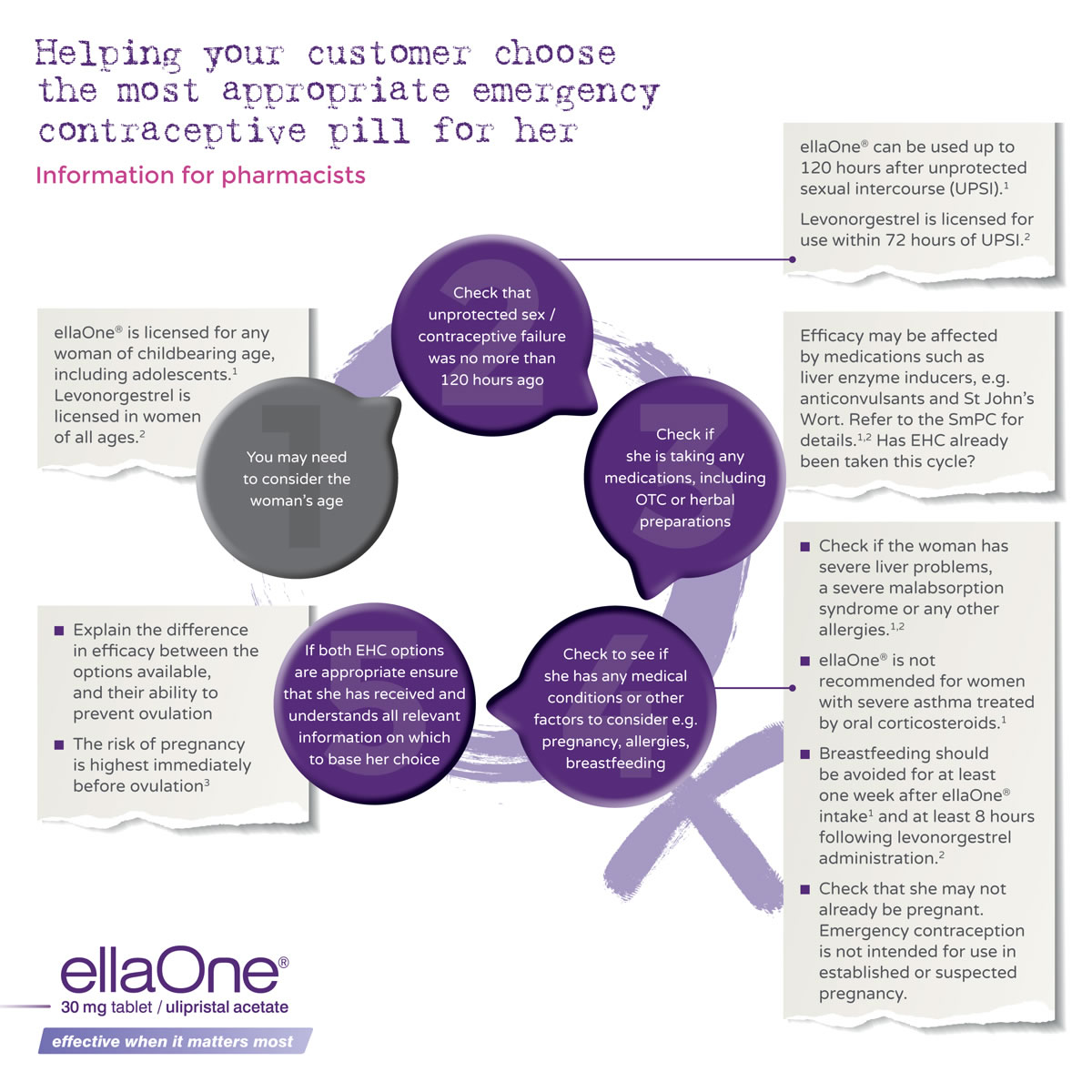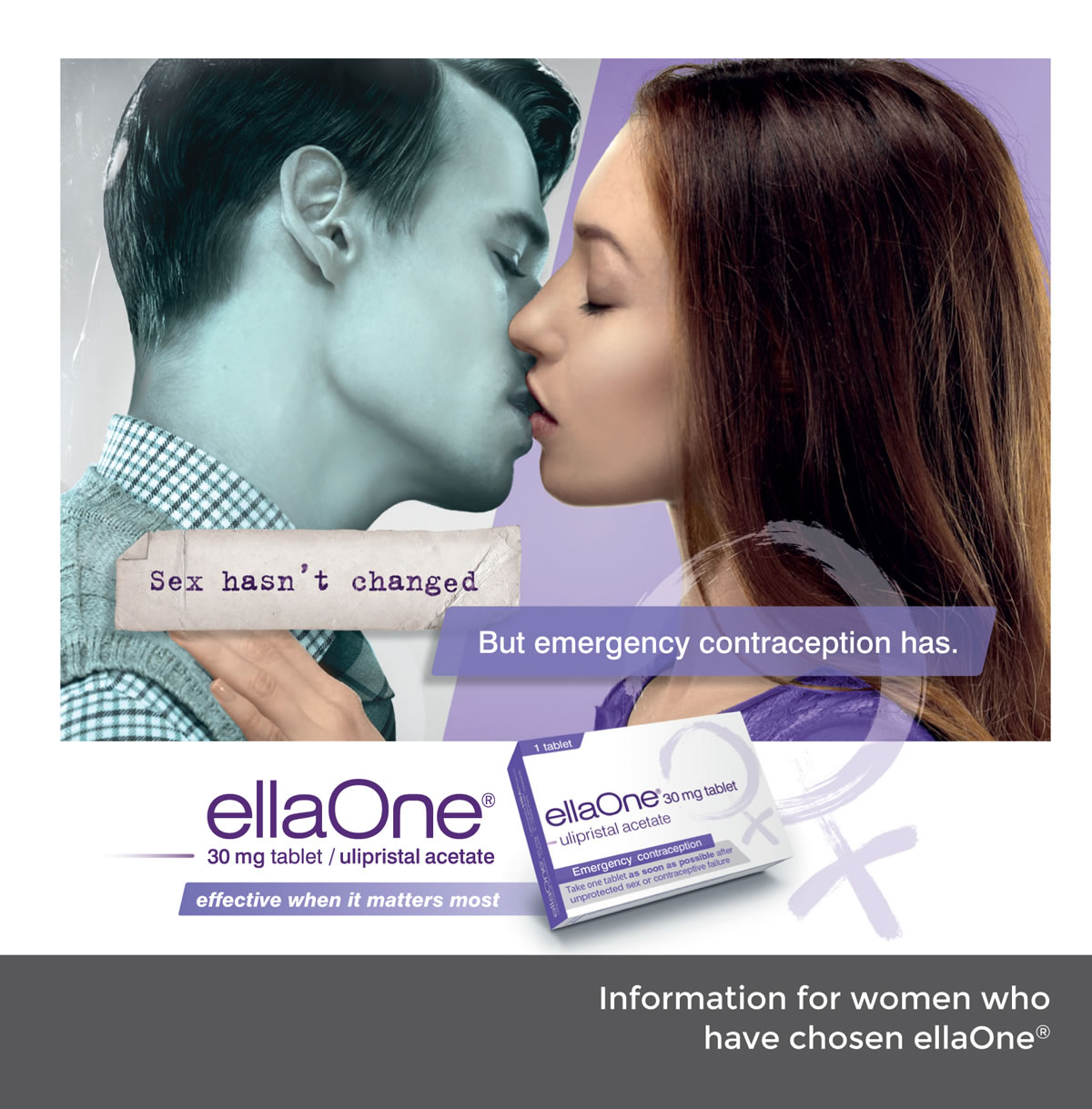ellaOne® can be used by all women of childbearing age.
Adolescent pregnancy is a recognised public health concern. EHC provides an important tool in the arsenal of contraceptive options that reduce the risk of unintended pregnancies. ellaOne® is suitable for any woman of childbearing age, including adolescents.
A post-marketing observational study evaluating the safety and efficacy of ellaOne® in adolescents aged 17 and younger showed no difference in the safety and effiacy profile compared to adult women aged 18 and older.
Practice Point
You may receive requests for EHC from women under 16 years of age. The PSI guidance for pharmacists on the supply of emergency contraception states: “Where a patient is under the age of 16 years it is usual that parental consent is sought. Pharmacists should also be aware that the age of sexual consent in Ireland is 17 years. Where appropriate, pharmacists need to assure themselves of the age of the patient. Having regard to the age and circumstances of the individual patient, and any child protection issues arising, pharmacists should consider whether referral to a medical practitioner, other healthcare professional, or other agency or authority, is appropriate.”
Consideration should be given on a case by case basis and the decision to supply EHC be based on the individual woman presenting. As outlined in the Fraser guidelines, in order to consider the individual’s legal capacity to receive/consent to treatment, you should verify that:
-
The individual can understand the advice and understands what is involved
- The individual cannot be persuaded to inform their parents
- Unless the individual receives contraceptive teatment, their physical or mental health (or both) are likely to suffer
- The individual’s best interests require them to receive contraceptive advice or treatment, with or without parental consent.
Other resources
You may also wish to view the following websites.










